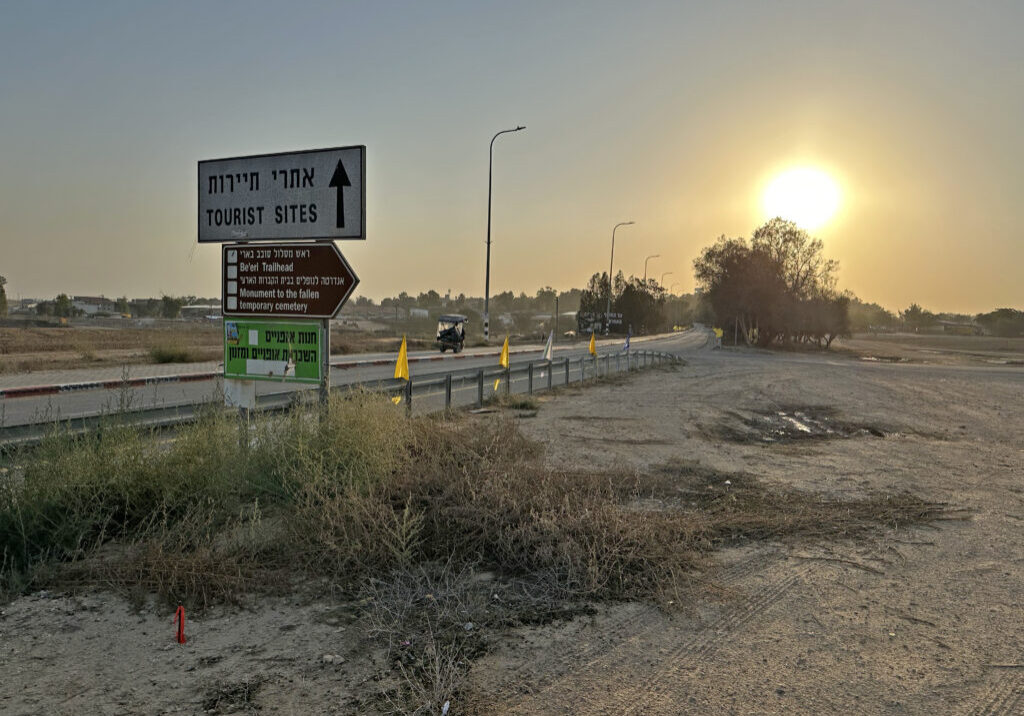Australia/Israel Review
Deconstruction Zone: Ice Cream for Hatred
Jul 30, 2021 | Ben-Dror Yemini

After coming under pressure from anti-Israel activists, the Ben & Jerry’s ice cream company announced on July 19 that it will no longer distribute its products in the “Occupied Palestinian Territory,” apparently referring to West Bank settlements, but will make a new “arrangement” so its products would remain available in Israel. Below is a response from Israeli columnist Ben Dror Yemini:
Dear Ben & Jerry’s directors,
I do not like boycotts, for they are seldom justified. Nor am I a devout supporter of Israeli rule in Judea and Samaria [the West Bank].
And although your ice cream has been my favourite until now, from this point on I intend to boycott it.
In fact, anyone who opposes racism, lies, incitement and human rights abuses should boycott your ice cream.
For even if you did not have racist or antisemitic intentions, your boycott is another success story for the racist and antisemitic campaign that opposes the very existence of just one state in the whole world: the Jewish state.
This is what you should know about this campaign, which is led by the Boycott, Divestment and Sanctions movement (BDS).
This campaign has no interest in peace nor in ending the occupation.
Yes, there are pure-hearted and honest people who support a peaceful, violence-free solution to the Israeli-Palestinian conflict and who also support this campaign. But they have been deceived.
They do not know the facts. And in order to know the facts, you should listen to what the creators and leaders of this campaign have to say.
Omar Barghouti openly declared that “no Palestinian will agree to a Jewish state.”
The same is true of Prof. As’ad Abu Khalil, who wrote that “the real aim of BDS is to bring down the state of Israel” and that this “should be stated as an unambiguous goal.”
In fact, there is not a single key activist in the boycott campaign who supports a fair solution of two states for two peoples.
Is this the struggle you support?
We need peace based on the compromises that have been proposed since the conflict began.
In fact, allow me to give you a brief review of the history:
As early as 1937, the Peel Commission proposed a solution that gave Jews just 4% of the original Palestine. The leader of the Palestinian Arabs at the time was the Mufti of Jerusalem, Haj Amin al-Husseini.
He said no. And when a decade later this became the United Nations Partition Plan, the Mufti was there again to lead the refusals.
This refusal led to both the Palestinian Nakba, when 715,000 people became what are today known as Palestinians, and a Jewish Nakba, when 850,000 Jews were forced to leave or be deported from Arab nations where they lived.
There have also been compromise proposals in recent decades. In 2000, then-US President Bill Clinton offered the Palestinians a state on about 96% of the territories, with additional land from Israel to make up the shortfall.
The Palestinians again said no. In 2008 they said no again to a similar proposal by then-Israeli Prime Minister Ehud Olmert.
They said no again in 2014 to a proposal by then-US Secretary of State John Kerry and then-US President Barack Obama.
It may have been possible to achieve peace. There were indeed here and there Palestinian leaders who were inclined to compromise. But the leaders of the boycott campaign continue in the path of the Mufti, standing up to oppose any compromise.
The settlements were never the obstacle to peace. Remember the settlements in the Gaza Strip that were all evacuated by the Israeli Government in 2005?
In fact, even today the settlements take up just a tiny percentage of the Palestinian territories.
Anyone who supports a solution of two states for two peoples knows that Arabs will continue to live in Israel, where they comprise 20% of the population, and a small percentage of Jews will be able to keep living in the Palestinian state.
Your boycott decision does not serve human rights or peace or reconciliation or compromise.
Your decision is also contrary to the winds that are blowing today in most Arab countries, where they know all too well that Palestinian refusal is the real problem and not Israel.
According to a survey conducted by the Zogby Institute a few months ago, most residents of Arab countries support normalisation with Israel.
And what about you? To which side do you belong? Are you on the side of those who want peace and normalisation or for those who cultivate boycotts and hatred?
Do you understand that you have chosen the wrong side?






